Search Results
Showing results 1 to 17 of 17

Low-Tech Water Filter for High-Impact Clean
Source Institutions
In this activity, learners consider the water features they might enjoy at a community park--a pond, brook, water playground (or "sprayground"), or pool--and what happens to the water over time.

Water Treatment
Source Institutions
Water treatment on a large scale enables the supply of clean drinking water to communities.

Conductivity: Salty Water
Source Institutions
Water, whether fresh or salty, serves as one of the best electrical conductors on the planet. Does salt effect its conductivity?

Can Nutrients in Water Cause Harm?
Source Institutions
In this water pollution activity, learners create pond water cultures and investigate the effects of adding chemicals or natural nutrients.

Differing Densities: Fresh and Salt Water
Source Institutions
In this activity, learners visualize the differences in water density and relate this to the potential consequences of increased glacial melting.

Water Clean-up
Source Institutions
This is an activity (located on page 3 of the PDF under Water Clean-up Activity) about the use of reduction agents to decontaminate ground water.
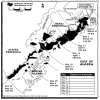
Fragile Waters
Source Institutions
In this activity (on pages 18-29) learners explore the impact of the March 24, 1989 oil spill in Alaska caused by the Exxon Valdez tanker.
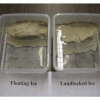
Global Climate Change and Sea Level Rise
Source Institutions
In this activity, learners practice the steps involved in a scientific investigation while learning why ice formations on land (not those on water) will cause a rise in sea level upon melting.
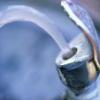
Water Fountain
Source Institutions
In this activity, learners explore how a hydraulic pump works. Learners work in teams to design and build a unique water fountain that employs a hydraulic pump.
What Does Life Need to Live?
Source Institutions
In this astrobiology activity (on page 11 of the PDF), learners consider what organisms need in order to live (water, nutrients, and energy).
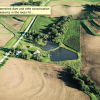
Positive Planning Adds Up
Source Institutions
In this drawing/mapping activity, learners design plots of land while incorporating positive strategies for improving water quality.

Pipeline Challenge
Source Institutions
In this activity, learners explore how engineers develop pipeline systems to transport oil, water, gas, and other materials over very long distances.
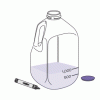
Lungometer
Source Institutions
In this environmental health activity, learners investigate their own vital lung capacities.

Wind Tunnel Testing
Source Institutions
In this activity, learners explore how wind tunnels provide feedback to engineers about the performance and durability of products such as planes, cars, and buildings.

Environmental Chemistry
Source Institutions
In this activity with several mini experiments, learners explore the chemistry that helps scientists learn about the environment and how they can help save it.

Oil Spill Solutions
Source Institutions
In this activity, learners explore how environmental engineers might approach solving the problem of an oil spill.

Design a Park
Source Institutions
In this activity, learners are invited to imagine the park of their dreams!
